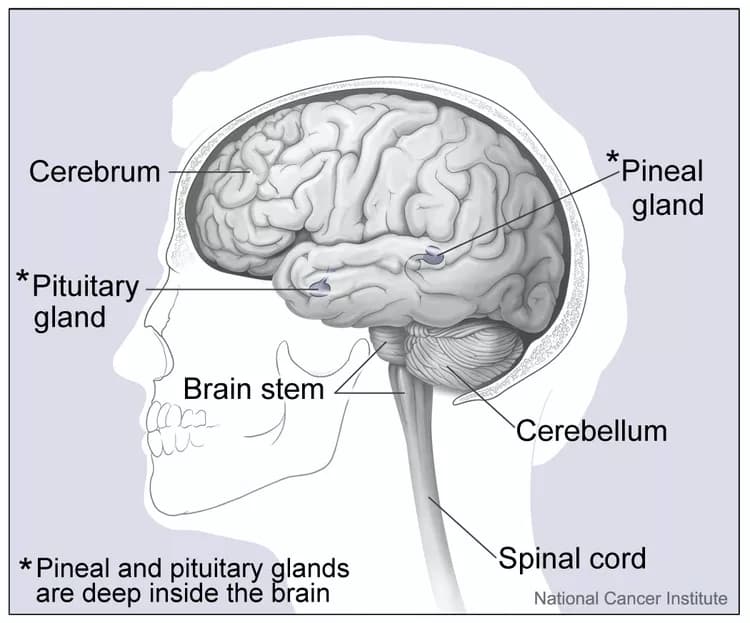
Investigational Immunotherapy Drug Shrinks Tumors In High-Risk Neuroblastoma Patients
Neuroblastoma tumors shrank, some dramatically, in 80 percent of newly diagnosed, young, high-risk patients enrolled in a Phase II clinical trial that included an experimental monoclonal antibody. The immunotherapy agent was produced on the St. Jude Children's Research Hospital campus where the study is still underway.
The research is being presented today at the 2016 American Society of Clinical Oncology annual meeting in Chicago.
Of the 34 children and teenage patients included in the report, 13 had completed therapy and showed no evidence of disease. Four patients have been off treatment for 18 months or more. Along with the investigational monoclonal antibody, study participants underwent multi-drug chemotherapy, surgery, radiation and autologous hematopoietic stem cell transplantation. Thirteen patients are still receiving treatment. In addition, two patients with persistent disease received additional therapy and two patients died of treatment-related toxicities.
"The early response is very promising, among the best that we have seen against neuroblastoma, but we still have a long way to go," said first author Wayne Furman, M.D., a member of the St. Jude Department of Oncology. "Will this translate into more cures? We hope so, but the answer is several years away."
Neuroblastoma is a cancer of immature nerve cells in the sympathetic nervous system that is identified in about 700 people in the United States annually, mostly children 5 years old or younger. It often begins in the adrenal glands on top of the kidneys and is the most common cancer diagnosed during the first year of life. While certain patients, particularly infants, have cure rates of 90 percent or better, the outlook is worse for more than half of newly diagnosed patients whose disease has already spread widely or includes mutations in the MYCN gene. With current treatment, 50 to 60 percent of these high- risk patients are still alive three years after their disease was diagnosed.
In this study, patients began treatment with chemotherapy using cyclophosphamide and topotecan and the experimental monoclonal antibody hu14.18K322A. After two rounds of therapy, researchers reported that primary tumors were 47 to 96 percent smaller in 80 percent of patients and had stopped growing in the remaining patients. In similar patients enrolled in a previous national trial, tumor size decreased in only 40 percent of patients treated with the same drugs but without hu14.18K322A.
Hu14.18K332A is a laboratory-produced antibody designed to activate the immune response against tumor cells by recognizing and binding to an antigen found on the surface of most neuroblastoma tumor cells. The antigen, GD2, is also carried on the surface of melanoma, the bone cancer osteosarcoma and some soft-tissue sarcomas. GD2 is also found on normal peripheral nerves. Binding of anti-GD2 monoclonal antibodies to these pain fibers causes severe pain and is the major side effect of these agents.
The experimental antibody in this study was engineered to reduce the treatment-limiting pain associated with other anti-GD2 monoclonal antibodies. Hu14.18K322A includes a point mutation in the hu14.18 protein that is designed to eliminate activation of the complement cascade that is believed to trigger the treatment-related pain. The experimental antibody also has fewer mouse components and is therefore less likely to become an immune target itself.
Treatment-related pain associated with the experimental monoclonal antibody was well controlled with intravenous narcotics that began prior to therapy, Furman said.
Hu14.18K322A is owned by EMD Serono, a division of German-based Merck KGaA. The monoclonal antibody is currently in clinical development at St. Jude, where the phase II trial in newly diagnosed, high-risk pediatric neuroblastoma patients is still underway. The hu14.18K322A used in this trial was produced in the St. Jude Children's GMP, LLC, which makes highly specialized medicines and other biologics according to Good Manufacturing Practice regulations.
Related Articles
Test Your Knowledge
Asked by users
Related Centers
Related Specialties
Related Physicians
Related Procedures
Related Resources
Join DoveHubs
and connect with fellow professionals

0 Comments
Please log in to post a comment.